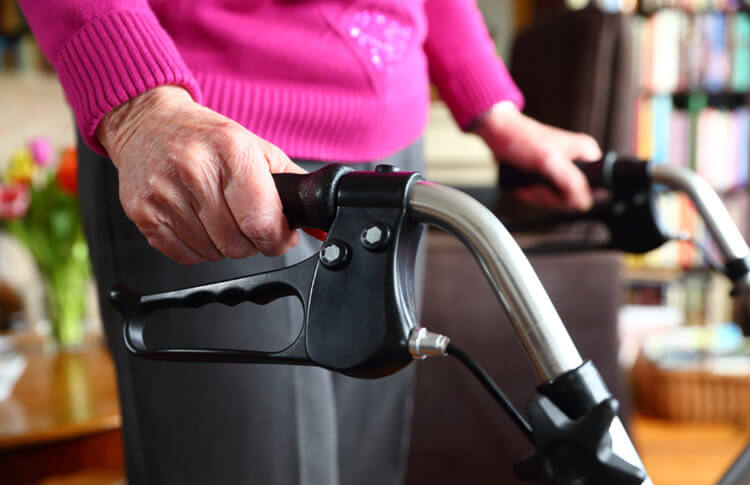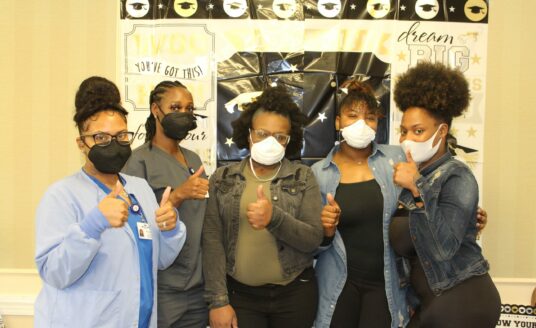When Karen Lootens Chantry had her arthritic hip replaced five years ago, she heeded her surgeon’s advice to recuperate at a well-regarded rehabilitation center. But rehab didn’t go so smoothly, Chantry, who is now 72, recalls.
“They encouraged me to be too gung-ho” about rehab exercises, leaving Chantry’s leg and hip painfully bruised, she says. After her surgery was revised in a second operation, she opted to recover at her home with the help of a visiting nurse, a physical therapist and her husband, John. Being home, surrounded by her own things and following her own schedule, “made a huge difference,” Chantry says.
So when she needed a knee replacement two years later, she knew exactly what she wanted to do: head straight home for two weeks of rehab before six weeks of outpatient therapy. The combination proved just right, she says. “I recuperated very, very quickly,” recalls Chantry.
Rethinking Rehab After a Hip or Knee Replacement
More than a million Americans will undergo knee or hip replacements this year, according to the National Institutes of Health. Most of them will be 45 or older and experiencing painful joint damage from osteoarthritis. In the past, many patients were routinely directed to inpatient facilities to rebuild their strength and reduce pain after the operation — especially if they were of Medicare age and lived alone.
But a wave of influential studies over the last five years has demonstrated that home rehab can be just as effective, less costly and even less risky for many patients. Now, with Medicare’s recent emphasis on “value-based care,” the tide has shifted and most knee or hip replacement patients are homeward bound.
“Our consensus is to encourage people to go home,” says Dr. Douglas Padgett, chief of the Adult Reconstruction and Joint Replacement Service at New York’s Hospital for Special Surgery (HSS). He estimates that 95 percent of his patients return home in a day or two.
Rehabilitation for Seniors Aging in Place
Home recovery can be suitable even for those who live alone, according to groundbreaking research by Dr. William Hozack, professor of orthopedic surgery at the Sidney Kimmel Medical College of Thomas Jefferson University in Philadelphia, and others.
The study, published in The Journal of Bone Surgery, compared 138 homebound patients who lived by themselves with 631 who lived with others, and found no significant differences 90 days after hip or knee surgery in their level of complications, mobility, pain or satisfaction. (Few study subjects were totally on their own, however; 80 percent said they had friends or family living within 15 minutes who were willing and able to help when needed.)
Researchers also found a dramatic reduction in cost for the homebodies, even though they generally spent an extra night in the hospital before release: $10,776 in savings per person. Most importantly, “We’ve shown that it’s safe and effective to go home alone,” Hozack says. “Home is a nice place to be, and a hospital has other risks.”
Weighing Your Options
Still, some patients decide that rehab centers are the best place for them. They may face bigger challenges after replacing both knees or hips at once. Perhaps they live far from family or friends, or are isolated in a walk-up apartment with steep stairs. Mobility might be limited by their age, obesity or other infirmities.
And some simply prefer the easy access to medical care and expert physical therapy to supplement rehabilitation that good rehab hospitals can provide.
Writer Deborah Waroff of Manhattan has experienced recovery from both sides, and declares rehab facilities the winner. “Even if you have a partner at home, it is just so much better to be in a good rehab facility where everything is set up to cover whatever you need,” she says. “You don’t have to schlep up to the doctor if you have a fall.”
If you do decide that a rehabilitation facility is the preferred route for you, Bethesda has six Rehab & Therapy Centers around the St. Louis area that can meet your specific needs. The service offers the ideal mix of privacy and isolation. The majority of participants stay in private rooms, while still eating their meals with groupsand participating in activities with the other individuals in the skilled nursing community who are undergoing therapy.
Preparing to Rehab at Home
If you elect to do in-home rehabilitation, how do you make the most of your recovery? After consulting your doctor, try the well-tested advice of those who have already succeeded. Here are four tips from former hip or knee replacement patients who went home after their surgeries:
- If you don’t work out regularly, ask your doctor to prescribe a few sessions of “prehab” with a physical therapist to strengthen your muscles for the new demands they’ll have to meet. (Note, though, that these may be subtracted from the post-op PT sessions your insurer will cover.)
- Fall-proof your home. Remove dangling extension cords, slippery rugs and anything else that might trip you up. Make sure your bed is firm and, low enough to plant your feet firmly on the floor and add secure grab bars in the bath or shower.
- Check out assistive devices online and with friends. Some may be covered by insurance, provided by your doctor, rentable or loanable.
- Make sure you have the right tools. Among the most recommended are raised toilet seats, shower stools (armless if they go in tubs), home icing machines (with names like “Game Ready”) and compression socks to reduce swelling.
Above all, motivation and involvement are key. Surround yourself with a support group that will keep you engaged, get started as soon as you can, do all your prescribed exercises and tell the visiting nurse or therapist about any difficulties you encounter.
At Bethesda, we understand that every rehabilitation process is unique. That’s why our Rehab & Therapy services include both in-home and on-site rehabilitation. For more information on which type of rehabilitation is right for you or your senior loved one, contact us today.
By Lynn Langway for Next Avenue
© Next Avenue – 2018. All rights reserved.
Want to find out more?
If you’d like to stay up to date with Bethesda Health Group, sign up here to receive our blog and newsletters!
"*" indicates required fields
Related Articles
Want to find out more?
If you’d like to stay up to date with Bethesda Health Group, sign up here to receive our blog and newsletters!
"*" indicates required fields



